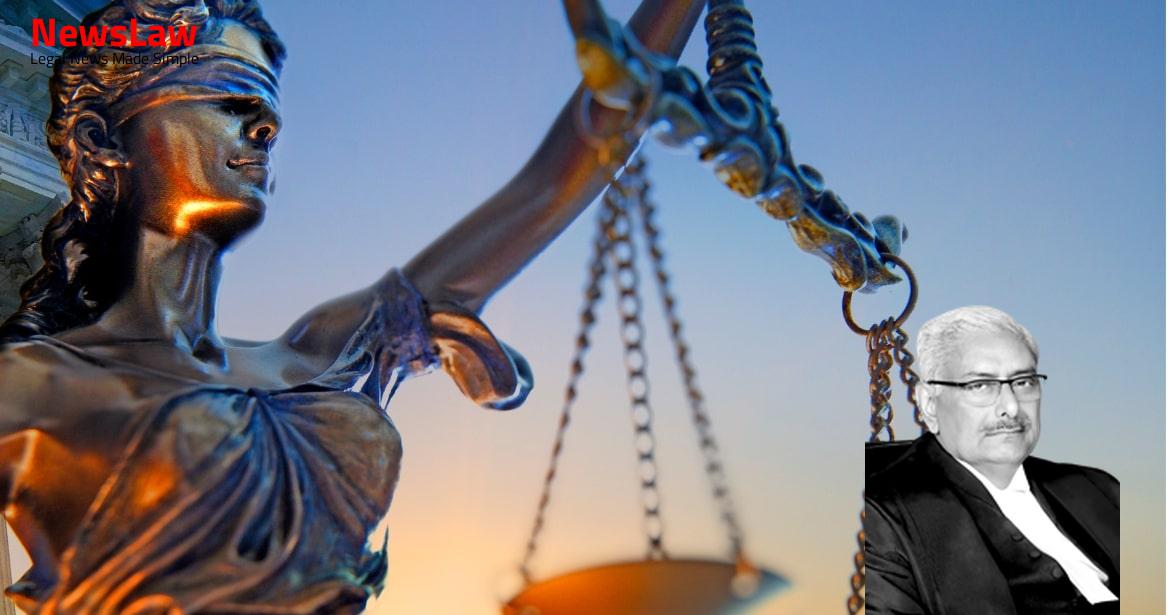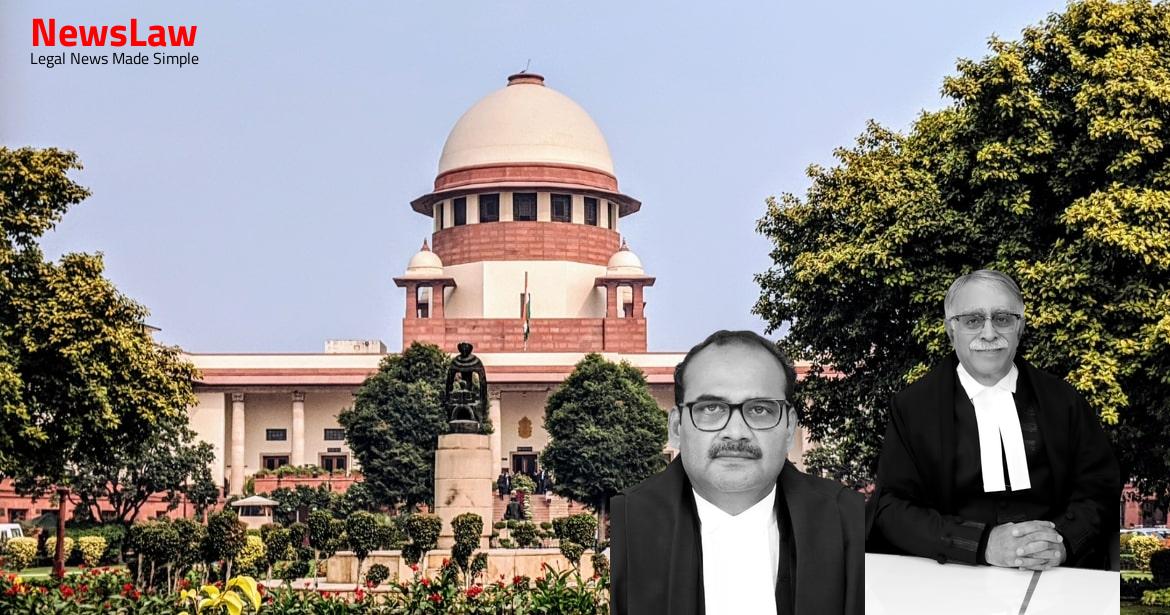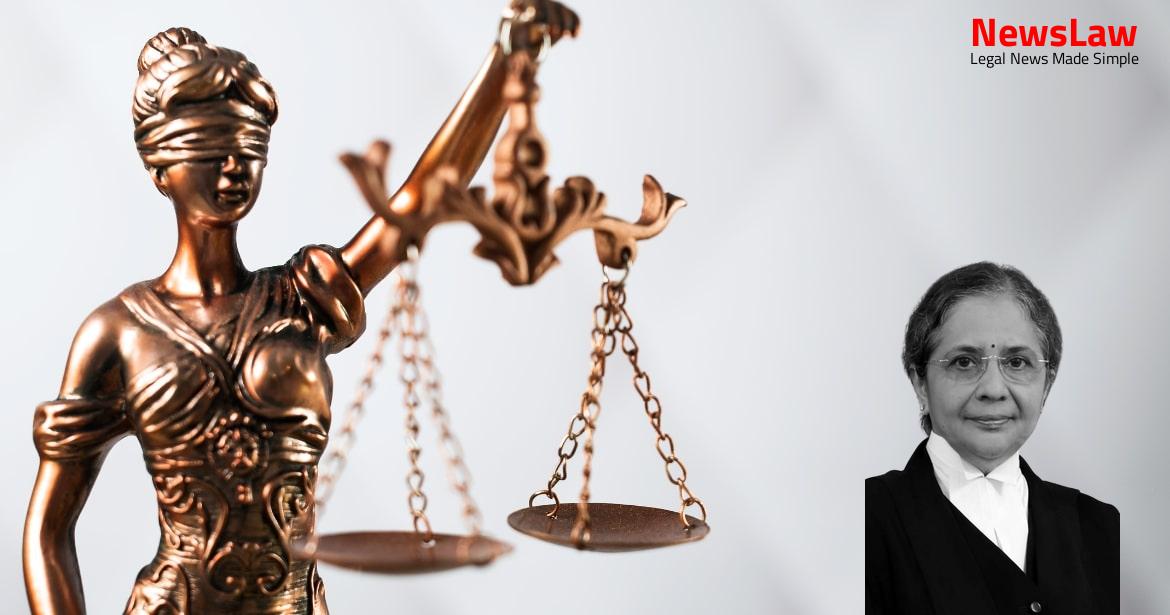In a recent legal judgment, the Court addressed the quashing of proceedings under the Atrocities Act, emphasizing the importance of human dignity and equality for all individuals. The case involved concerns raised regarding section 18A of the Scheduled Castes and Scheduled Tribes (Prevention of Atrocities) Act, 1989. The petitioners raised issues related to the necessity of a preliminary enquiry and approval for arrest in cases under this Act. The judgment delves into the complexities of safeguarding rights while preventing misuse of legal provisions, shedding light on the intersection of justice and social equality.
Arguments
- The petitioners have raised concerns regarding the provisions of section 18A of the Scheduled Castes and Scheduled Tribes (Prevention of Atrocities) Act, 1989.
- Section 18A outlines that for cases under this Act, no preliminary enquiry is required for the registration of a First Information Report (FIR) against any person accused of committing an offence under the Act.
- Additionally, the investigating officer does not need approval for the arrest, if necessary, of any person accused of an offence under this Act.
- The provisions of section 18A specify that no procedure other than what is provided in this Act or the Code of Criminal Procedure shall apply in such cases.
Also Read: Preservation of Fundamental Rights in Education
Analysis
- The judgment discusses the importance of basic human dignity and equality for all individuals.
- Article 17 of the Constitution deals with abolishing untouchability.
- Special legislation is necessary to deter crimes against Scheduled Castes and Tribes.
- The court quashes proceedings in the present case as an abuse of process.
- Grant of anticipatory bail is not an absolute bar in cases under the Atrocities Act.
- A preliminary inquiry is permissible under certain circumstances based on established law.
- Legislation is required to protect and provide rigorous provisions for the marginalized sections.
- Protection of human rights is highlighted as crucial in various instances such as gender injustice and social ostracism.
- Provisions under Article 21 ensure the right to live and die with dignity.
- The judgment discusses the necessity of appointing authority approval for the arrest of public servants.
- Barriers to grant anticipatory bail in cases under specific acts are clarified.
- Provisions for compensation under Article 21 due to human rights violation are acknowledged.
- Guidelines and safeguards are emphasized to prevent false implications and ensure proper investigation.
- Misuse of legal provisions is addressed with the need for adequate safeguards.
- The judgment affirms the legality of specific provisions related to anticipatory bail.
- High Court intervention can be sought for quashing FIRs to prevent potential false implications.
- Concerns regarding the misuse of legal provisions are to be dealt with appropriately.
- The judgment emphasizes the necessity to balance the protection of rights with the investigation process.
- The judgment analyzes various directions issued by the Court related to the arrest of public servants and non-public servants under the Atrocities Act of 1989.
- It discusses the implications of requiring approval from the appointing authority or the SSP for arrest under the Act.
- The Court emphasizes that the denial of anticipatory bail in cases under the Act is justified due to the unique nature of these offenses and the need to protect victims and prevent intimidation.
- The social conditions and historical background surrounding the enactment of the Act are taken into consideration in evaluating the provisions.
- The judgment points out the importance of promptly registering FIRs in cases under the Act to ensure timely justice for the victims.
- It also touches upon the challenges faced by members of Scheduled Castes and Scheduled Tribes in accessing equal civil rights and protections.
- The analysis highlights the need for a balanced approach to ensure the prevention of atrocities while safeguarding against misuse of the law.
- Sanction of the appointing authority is required for public servants under Section 197, Cr.PC.
- Cognizance of the offense cannot be taken without this sanction.
- The provision does not apply at the stage of arrest.
- The court clarified its stance on exercising power under section 482 Cr.PC for quashing cases to prevent misuse of provisions, as seen in the review petitions.
- It was reiterated that the court can intervene in exceptional cases to prevent misuse of legal provisions, following established guidelines.
- The legal position remains unchanged, and no counterarguments were presented during the review.
- If a complaint fails to establish a prima facie case under the Act of 1989, sections 18 and 18A(2) will not be applicable.
Also Read: Legal Analysis on Shareholding and Nomination Rights
Decision
- The challenge to the provisions has been rendered academic.
- In view of the clarifications provided, the petitions are disposed.
Also Read: Legal Analysis of Change in Law Compensation in Power Purchase Agreements
Case Title: PRATHVI RAJ CHAUHAN Vs. UNION OF INDIA (2020 INSC 157)
Case Number: W.P.(C) No.-001015 / 2018



